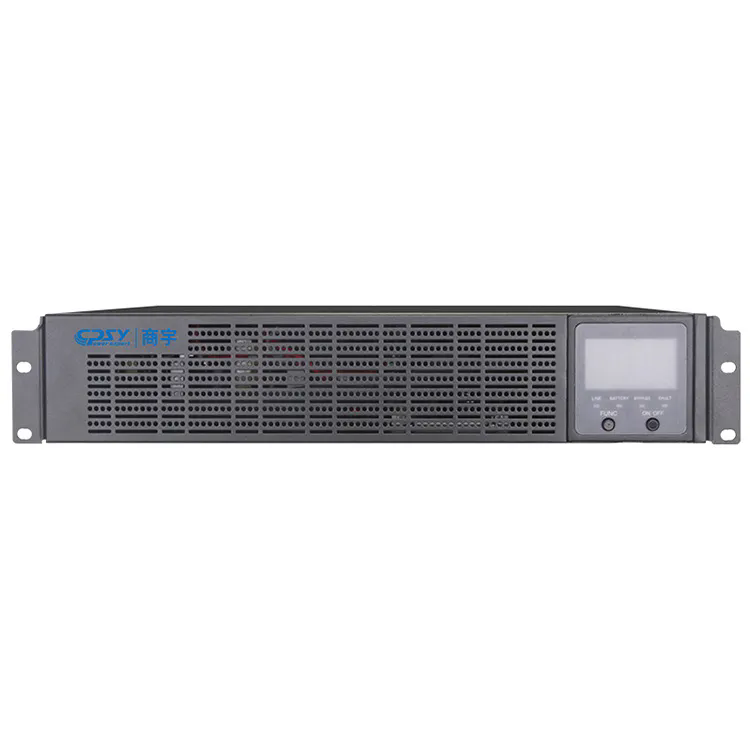Lithium-Ion UPS: The Future of Reliable Power Backup
2024-08-22
In an age where uninterrupted power supply (UPS) systems are critical for both personal and business continuity, advancements in battery technology are driving significant improvements in power backup solutions. Among these advancements, lithium-ion UPS systems stand out as a modern, efficient, and reliable choice for safeguarding against power disruptions. In this blog, we’ll explore what a lithium-ion UPS is, how it works, its benefits, and why it’s becoming the preferred option for power backup.
What Is a Lithium-Ion UPS?
A Lithium-Ion Uninterruptible Power Supply (UPS) is a backup power system that uses lithium-ion batteries to store and provide power during electrical outages or fluctuations. Unlike traditional lead-acid UPS systems, which have been the standard for many years, lithium-ion UPS systems utilize advanced lithium-ion technology, offering a range of benefits that enhance their performance and longevity.
How Does a Lithium-Ion UPS Work?
A lithium-ion UPS functions by constantly monitoring the power supply from the main electrical grid. When it detects a power interruption or significant voltage drop, the UPS switches to its battery power to maintain a continuous supply of electricity. This ensures that connected devices, such as computers, servers, and sensitive electronic equipment, remain operational during power outages.
Key components of a lithium-ion UPS include:
1. Lithium-Ion Batteries:
These batteries store energy and provide backup power when needed. They are known for their high energy density, longer lifespan, and faster charging times compared to traditional lead-acid batteries.
2. Inverter:
The inverter converts the DC power stored in the batteries into AC power, which is used to supply the connected devices. It ensures a stable and reliable output to maintain the functionality of the equipment.
3. Battery Management System (BMS):
The BMS monitors the health and performance of the lithium-ion batteries. It ensures safe charging and discharging, prevents overcharging, and manages temperature to extend battery life.
4. Charge Controller:
This component regulates the charging process of the batteries, optimizing their performance and ensuring they are charged efficiently and safely.
5. Monitoring and Management Interface:
Many modern lithium-ion UPS systems come with monitoring and management interfaces that allow users to track battery status, power usage, and system performance. These interfaces provide valuable insights and facilitate remote management.
Benefits of Lithium-Ion UPS Systems
1. Longer Battery Life:
Lithium-ion batteries have a significantly longer lifespan compared to lead-acid batteries. While lead-acid batteries typically last 3-5 years, lithium-ion batteries can last 8-10 years or more, reducing the need for frequent replacements.
2. Higher Energy Density:
Lithium-ion batteries offer a higher energy density, meaning they can store more energy in a smaller, lighter package. This results in a more compact and efficient UPS system.
3. Faster Charging:
Lithium-ion batteries charge faster than their lead-acid counterparts. This quick charging capability ensures that the UPS system is ready to provide backup power more rapidly after an outage or discharge.
4. Reduced Maintenance:
Lithium-ion UPS systems require minimal maintenance compared to lead-acid systems. They do not require regular electrolyte checks or equalization charges, simplifying upkeep and reducing operational costs.
5. Improved Efficiency:
Lithium-ion UPS systems generally have higher efficiency ratings, meaning they waste less energy during the conversion process. This improved efficiency translates to lower energy costs and reduced heat generation.
6. Smaller Footprint:
The compact design of lithium-ion batteries allows for a smaller UPS unit. This space-saving feature is ideal for environments with limited space, such as data centers, offices, and home setups.
7. Environmental Benefits:
Lithium-ion batteries are less harmful to the environment than lead-acid batteries. They contain fewer toxic materials and are more easily recyclable, contributing to a greener and more sustainable approach to power backup.
8. Enhanced Safety:
Lithium-ion batteries are designed with advanced safety features, including thermal protection and overcharge prevention. These safety mechanisms reduce the risk of battery failure and associated hazards.
Applications of Lithium-Ion UPS Systems
1. Data Centers:
Data centers rely on UPS systems to ensure continuous operation of servers and critical infrastructure. Lithium-ion UPS systems provide reliable backup power with long battery life and high efficiency, essential for maintaining data integrity and uptime.
2. Telecommunications:
Telecom facilities require uninterrupted power to keep communication networks operational. Lithium-ion UPS systems offer a dependable solution with reduced maintenance and enhanced performance for telecom applications.
3. Healthcare Facilities:
Hospitals and medical facilities depend on UPS systems to power life-support equipment, diagnostic tools, and critical systems. The reliability and longevity of lithium-ion UPS systems are crucial for ensuring patient safety and operational continuity.
4. Industrial and Manufacturing:
In industrial settings, UPS systems protect machinery, control systems, and production lines from power interruptions. Lithium-ion UPS systems provide robust backup power with minimal footprint, ideal for manufacturing environments.
5. Commercial and Office Environments:
Offices and commercial spaces use UPS systems to safeguard computers, networking equipment, and other critical electronics. The compact design and long battery life of lithium-ion UPS systems make them suitable for a variety of office applications.
6. Residential Use:
For homeowners, a lithium-ion UPS can provide backup power for essential appliances, home office equipment, and security systems. The space-saving design and reliability make it a practical choice for residential settings.
Choosing the Right Lithium-Ion UPS
When selecting a lithium-ion UPS, consider the following factors:
1. Power Capacity:
Determine the power requirements of the devices you need to protect. Choose a UPS with a capacity that matches or exceeds your needs to ensure adequate backup power.
2. Runtime:
Evaluate the desired runtime during power outages. Select a UPS with sufficient battery capacity to provide backup power for the necessary duration.
3. Form Factor:
Consider the physical size and design of the UPS. Ensure it fits within your available space and meets your aesthetic and functional requirements.
4. Features and Interfaces:
Look for features such as monitoring interfaces, remote management capabilities, and customizable settings. These features can enhance the usability and functionality of the UPS system.
5. Brand and Warranty:
Choose a reputable brand with a strong track record in UPS technology. Review the warranty and support options to ensure you receive reliable service and protection for your investment.
Conclusion
The Lithium-Ion UPS represents a significant advancement in power backup technology, offering enhanced performance, longer battery life, and greater efficiency compared to traditional systems. Its benefits, including reduced maintenance, improved safety, and environmental advantages, make it a compelling choice for a wide range of applications. Whether for data centers, healthcare facilities, industrial environments, or residential use, a lithium-ion UPS provides reliable and efficient backup power to safeguard against disruptions. Embrace the future of power backup with a lithium-ion UPS and experience the difference in reliability, performance, and convenience.



